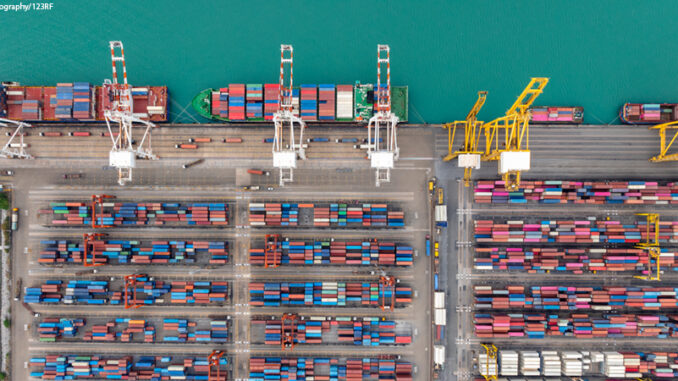
There has been much news lately about tariffs and how they impact everything from grocery prices to phones. But people in the United States aren’t the only ones affected by these economic influencers. At the end of September 2025, a long-standing economic trade agreement between the U.S. and nations of the African continent expired. This is expected to result in widespread consequences – not just for Africa, but for the world.
What is AGOA?
Twenty-five years ago, the Bill Clinton administration signed the African Growth and Opportunity Act (AGOA). AGOA established tariff-free trade with developing African nations. Its economic goal was to boost economic development. AGOA allowed thousands of African products to enter the U.S. market duty free. (A duty-free good does not have additional taxes and fees added to the base price when it is imported from another country.) AGOA helped many African nations achieve huge growth in the export of goods such as textiles, agriculture products, and automobile parts.
But AGOA expired at the end of September. While legislation was introduced that would renew or reinstate AGOA, the U.S. government shutdown halted the passage of this effort. In the absence of AGOA, the Trump administration has imposed tariffs on the nations of Libya, South Africa, Algeria, and Tunisia that range from 25 percent to 30 percent. Eighteen other African nations face 15 percent charges on exports to the U.S.
What is the Impact on Africa’s Overall Trade?
The imposition of these tariffs on African exports will have serious economic consequences for African nations. Experts estimate that the policy will directly cost about 300,000 jobs and indirectly impact over a million other employed people. The loss of these jobs, especially in areas like textiles and farming, could cause many people to migrate to another country in search of work. Women and young people will likely face an even more difficult time finding new jobs. The nation of Lesotho has already declared a two-year national state of disaster because of the tariffs and the massive job losses that are expected to result.
So meanwhile, even while lobbying Washington, D.C., to renew AGOA, many African countries are actively looking for other trade markets for their goods. They are turning to the Philippines, Thailand, and China as a replacement market. China is already Africa’s largest bilateral trading partner. It agreed in June to eliminate any tariffs on goods from the African continent. Some African nations are also looking for ways to be more self-sufficient and less reliant on trade. All of this will reduce the overall political and economic influence that the U.S. has on the African continent.
A Complicated Relationship
In July 2025, the Trump administration held a White House summit of a few African leaders to discuss economic development and commercial partnerships. (The African continent includes more than fifty countries, and only five were invited to the summit: Mauritania, Guinea-Bissau, Liberia, Senegal, and Gabon.) The summit excluded all the continent’s biggest economies: South Africa, Nigeria, Egypt, and Ethiopia. That’s because those countries are allied to an economic group called BRICS, which was founded by several nations, including Russia and China. The countries that were invited, though they have smaller economies, are rich in mineral resources, such as oil, gas, gold, and iron ore.
Moreover, also in July, the Trump administration ended USAID (the U.S. Agency for International Development). This federal government organization delivered humanitarian aid around the world. Trump has also imposed travel bans on twelve African and Middle Eastern nations. The end of AGOA, and the imposition of the new tariffs, puts further strain on the relationship between the U.S. and the African continent.
